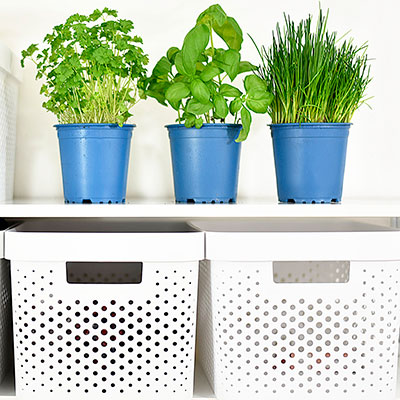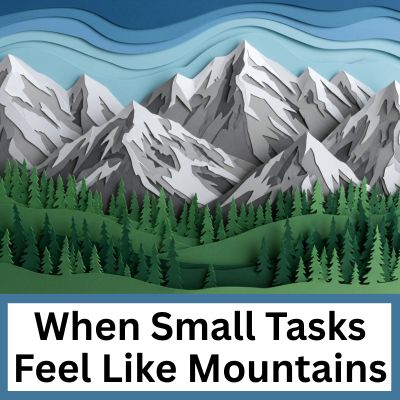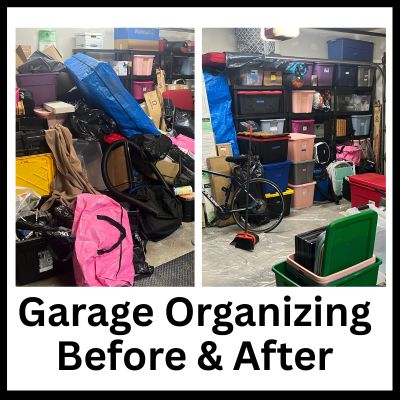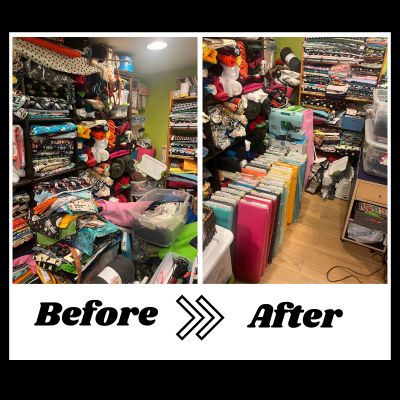Linear Thinking Versus a Holistic Approach

You’ve probably heard generic organizing “commandments” from magazines that say something like:
-One in, one out
-If you haven’t used/worn it in a year, donate it
-Only buy what you need (no impulse purchases, even if it’s on sale)
-Touch it once
-Odds and ends should remain hidden
-This list goes on…
The trouble is, in the hands of someone with executive functioning issues, these constricting rules will not only instigate rebellion, they will not support an organized home full of joy. Executive functioning consists of working memory, flexible thinking, and self-control. Executive functioning is responsible for focused attention, organizing, planning, prioritizing, getting started, completing tasks, understanding different perspectives, regulating emotions, and other types of self-regulating. These skills usually develop in childhood and teenage years, and continue developing into the mid-20s. People who have fully developed executive functioning skills will naturally have an easier time being organized.
If you’re having issues with executive functioning, you may have trouble with time management, organization, getting started, prioritizing, memory, switching tasks, and keeping track of your belongings. Remember that these are executive functioning issues. So by simply trying to ameliorate these issues with logical organizing tips simply WILL NOT WORK. These are brain based issues, and so brain health needs to get taken into account. Fueling your body the right way, staying hydrated, exercise, and proper sleep will all have a direct impact on positive brain health. Without taking this into account, organizing will forever be an uphill battle.
I was recently asked to contribute to the Seattle Times for an article about New Year’s Resolutions for an organized home. (I believe the author was looking for something more like the “organizing rules” stated above, and so I’m not sure if my contribution will make it into her article.) I submitted this:
Tip #1: An organized home requires that you fuel your body for success. It takes physical, mental, and emotional energy to do the heavy lifting, problem solve, and to have the capacity to make decisions. Be sure to feed yourself the foods that you know will help you have sustained energy and strength so that you can complete the task ahead. Stay hydrated too! Steer clear of foods or drinks that will give you a rush of energy but will end with a crash. It will make it that much harder to get your home organized. Find foods that you love to eat that nourish your body, and make sure to drink plenty of fresh water. Although this may not seem related to organizing, as a Certified Professional Organizer, I have spent thousands of hours helping my clients get organized and stay organized. Our most successful sessions come when my clients have fueled up properly. To get your home organized, create a resolution around diet. Keep it positive. Instead of saying what you’re “not” going to do, focus on filling your body with foods that you “do” want to eat. This is called the “crowding out method”.
Tip #2: Quite often, your home is a reflection of your subconscious mind. If you want your home to look and feel healthy, working on your brain health will allow your home to seemingly magically fall into place. In addition to my tip about diet, balancing sleep and exercise play a crucial role in your brain’s ability to function optimally. Make sure you’re getting enough quality sleep, and moving your body throughout the day. Of course it is possible to over-do these things too! Over sleeping and over exercising aren’t going to get your home in order either. Find a balance. Create a resolution around sleep and exercise. This will help strengthen your body so that you will have the physical stamina to move your things around (books, clothes, boxes of stuff are heavy!) and mental power to stick with it, even if things get tough.
Executive functioning issues are very closely related to ADHD. Here is an article that talks more about executive functioning. As a Certified Professional Organizer (who also has ADHD!), I love helping people with executive functioning skills. My virtual organizing sessions are particularly good for people with ADHD, especially because I have a certification in virtual organizing from Sheila Delson, one of the founders of the Institute of Challenging Disorganization. The focused attention, the frequency, and the duration of the session all contribute to improving neuroplasticity. Neuroplasticity is responsible for habit formation. The difference between an organized home and disorganized home is the series of habits that have either contributed positively or negatively to the state of the home. When it comes to executive functioning issues, which is the hardest for you? Send me a message so that I can cater a blog post to your needs.

By Jean Prominski, Certified Professional Organizer
Sign up for my free 4 Day Color to Declutter Challenge.
Become part of a like-minded community by joining my Facebook Group, Declutter and Organize with Seattle Sparkle.
Ready to book a consultation? Complete this form.
For artwork to energize your home, order through jeanprominski.com or on Etsy.




